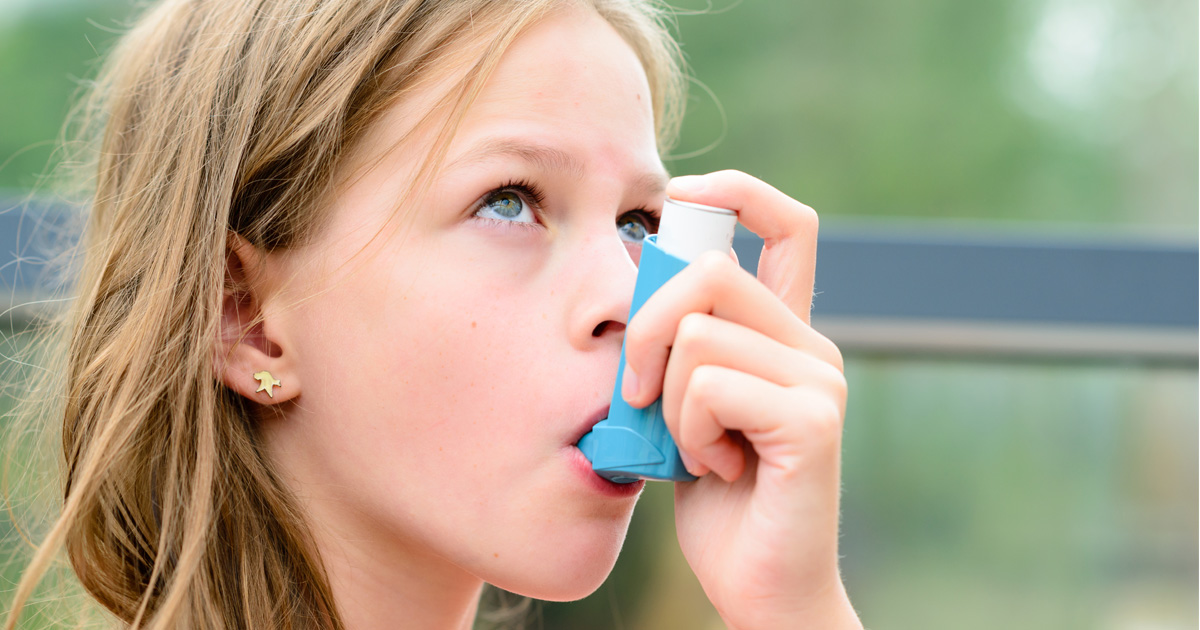How can diet and maternal education impact allergies among preschool children?
Childhood asthma and allergy: a large public health burden
The prevalence of asthma and allergy has increased among children. Environmental factors, particularly unhealthy nutritional family habits during the prenatal and early life, changes of lifestyle behaviors and dietary patterns might be the cause of this increase. Although evidences are unclear until now, nutrition could be responsible of the development of asthma and allergic disease. Several studies have shown that an increased fruit and vegetable consumption has a beneficial effect on asthma and allergy in children1,2.
The major aim of this case-control study was to investigate the relationship between the consumption of fruit, vegetables, nuts, meat and fish, and the prevalence of wheeze, asthma, and eczema among 1489 preschool children aged 4-6 years. To do so, children’s parents have responded to questionnaire to collect information on allergic diseases, dietary pattern, and other variables.
Fruit, vegetables and nuts consumption has a positive effect on allergy diseases
Results have shown that 83.3% of the studied children consume fresh fruit and/or vegetables at least three times per week. Fruit consumption was found to have beneficial effect on wheeze. In addition, children who ate fruit, vegetables, nuts and meat had a lower risk of asthma than those who did not. These results are in accordance with another study, the PIAMA birth cohort study, which found a less asthma risk among school age children who consumed continuously high amount of fruits since infancy comparing to those who did not3. This could be explained by the fact that vegetables and fruit contain antioxidant vitamins, especially vitamins A, C, and E and carotenoids, as well as other antioxidants like selenium and flavonoids that may have beneficial effects on asthma, wheezing symptoms, and the respiratory function4-6.
Moreover, a lower 61% risk of eczema was found among children who consume nuts. This result is coherent with the finding of another study that showed an association between an increased consumption of vegetables and nuts, and a decreased in the symptoms of wheezing and other allergic diseases7.
Children with high-educated mother consume more F&V
Sixty-one percent of women who participated in this study were highly educated. Asthma was physician-diagnosed in 10.7% of families in the group having a low education level, while in high educational level group the prevalence of physician-diagnosed asthma was 5.7%. Furthermore, the study revealed that children of higher-educated mothers have a weekly consumption of fruit and vegetables more important than those of medium and low educated mothers. These findings confirm the results of a crosssectional Norwegian study that found a lower fruit and vegetables consumption in families with a lower socioeconomic status8.
Promote diet intervention for allergy prevention
The study’s findings support the idea to have future interventions for allergy preventions by focusing on specific early-life diets.
Based on: Andrusaityte S, Grazuleviciene R, Petraviciene I. Effect of diet and maternal education on allergies among preschool children:A case-control study.
Environmental Research 2017. 159: 374-380
References
1. Farchi S, et al. (2003). Eur Resp J 22(5), 772–780.
2. Forastiere F, et al. (2000). Thorax 55(4), 283–288.
3. Willers SM, et al. (2011). Eur Resp J 37, 1060–1067.
4. Devereux G, et al. (2005). J. Allergy Clin. Immunol. 115 (6), 1109–1117.
5. McKeever TM, et al. (2004). AM J Respir Crit Care Med 170(7), 725-729.
6. Romieu I, et al. (2006). Thorax 61(3), 209–215.
7. Ellwood P, et al. (2001). Eur Resp J 17(3), 436-443.
8. Fismen AS, et al. (2014). Int. J. Behav. Nutr. Phys. Act. 11, 1–10

